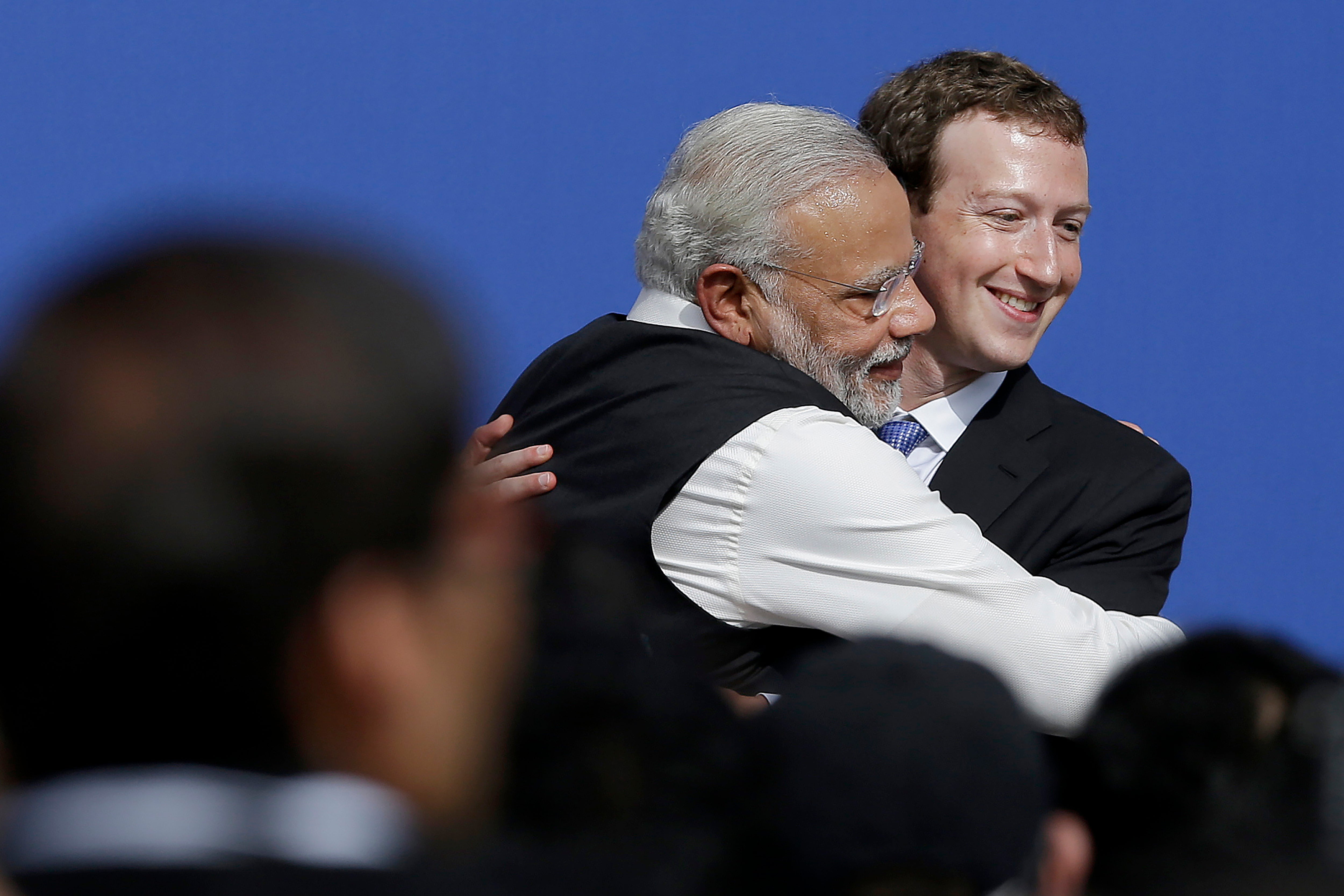Meta and media outlet The Wire lock horns over exposé on platform favouring India’s ruling party
Indian news site ‘The Wire’ says Meta took down posts critical of BJP without any checks

Social media giant Meta has slammed an exposé carried out by an Indian media outlet on its practices as “outlandish” after it was claimed that the company favoured Narendra Modi’s Bharatiya Janata Party by removing critical posts through its XCheck programme.
The social media giant, which has repeatedly been accused of several wrongdoings by whistleblowers, including favouring certain governments, has denied a series of allegations made by Indian news outlet The Wire in two back-to-back reports this week.
In a detailed statement published on Wednesday, Meta called the investigation by The Wire “false” and said it was based on “fabricated evidence”.
“Our cross-check system was built to prevent potential over-enforcement mistakes and to double-check cases where a decision could require more understanding or there could be a higher risk for a mistake,” the company said.
Meta says its XCheck (read Crosscheck) programme does not grant enrolled accounts the power to automatically have content removed.
“While it is legitimate for us to be held accountable for our content decisions, the allegations made by The Wire are false. They contain mischaracterisations of how our enforcement processes work, and rely on what we believe to be fabricated evidence in their reporting.”
On Monday, the outlet had published its first exposé, claiming Meta had allegedly granted Amit Malviya, a BJP member heading the party’s IT cell, the unchecked ability to remove content from its platforms.
The report said this was done as part of Meta’s XCheck programme – a privilege granted to VIP users, which was first reported upon by the Wall Street Journal last year.
The Wire based its investigation on seven posts by a satirical account with the handle @cringearchivist.
The posts were critical of the BJP chief minister of India’s largest state, Yogi Adityanath, and were removed by Meta, bizarrely under the platform’s “nudity and sexual content” guidelines.
The platform reported, citing unnamed sources within Meta, that the company had taken down the post criticising Mr Adityanath “without any of the company’s moderators looking at it” because Mr Malviya had flagged it.
In its statement, Meta has once again rubbished the claims saying the “allegedly leaked screenshots” the article is based upon are “fabricated”.
“The URL on that ‘report’ is not in use. The naming convention is one we don’t use. There is no such report,” it said.
Earlier, Meta policy communications director Andy Stone also tweeted that XCheck status “has nothing to do with the ability to report posts”.
“The posts in question were surfaced for review by automated systems, not humans. And the underlying documentation appears to be fabricated,” Mr Stone tweeted.
The company also went on to claim that it “did not identify a user report regarding the @cringearchivist content in September” as reported by The Wire.
Soon after its first report, the portal published another one a day later to back up its reportage, including a picture of an alleged email sent by Mr Stone to Meta’s internal teams asking how the document got leaked.
The picture also suggested Mr Stone demandedThe Wire’s reporter and editor, Jahnavi Sen and Siddharth Varadarajan, be put on a “watchlist” so communications to them from Meta staff can be monitored.
The claim has raised an alarm among the journalistic community online, which has questioned whether the social media giant monitors the communications of media outlets and reporters.
Meta issued a clarification, suggesting the email was “fake”.
“There are no such emails,” the company claimed in its Wednesday statement.
“That same story makes reference to an internal journalist ‘watch list.’ There is no such list,” the statement read.
The official statement echoes the claim made by Meta’s chief security information officer Guy Rosen, who said: “The supposed email address from which it was sent isn’t even Stone’s current email address, and the ‘to’ address isn’t one we use here either. There is no such email.”
The story and Facebook’s reaction has left experts divided.
The company’s claim that it does not use the FB.com address anymore was questioned by several journalists who have received emails from the firm in the last few weeks.
However, several people who have raised questions about Facebook’s internal workings in the past, have also raised doubts over the authenticity of The Wire’s story.
Sophie Zhang, a former whistleblower who accused the company of not acting against a BJP lawmaker’s network of bots, said the documents appeared “clearly faked”.
ButThe Wire’s editor, Siddharth Varadarajan, who was also named in the purpoted email by Mr Stone, has said the news portal stands by its expose and has demanded that Facebook clarify why posts critical of Mr Adityanath were removed.
Mr Varadarajan shared some details about The Wire’s reportage in a Twitter thread and said the portal would release another report “nailing Meta’s false claims about our stories”.
“Our stories came from multiple Meta sources—whom we know, have met & verified.”
However, Meta’s outright denial without any proof and suggestion that The Wire may have fabricated the story is also drawing criticism from many, including from some experts in India.
The Wire, an organisation that is frequently under attack by the supporters of Mr Modi, is known for its investigative journalism and critique of the Hindu nationalist government of BJP.
Nikhil Pahwa, a journalist and digital rights activist in India, wrote in a Twitter thread: “For a PR department of a company, and especially a large company like Meta, to even *suggest* that the Wire could be the perpetrator of a hoax, is a big thing.”
“Meta wouldn’t have done this to NYT or WSJ, right?” he wrote.
Join our commenting forum
Join thought-provoking conversations, follow other Independent readers and see their replies
Comments


Bookmark popover
Removed from bookmarks